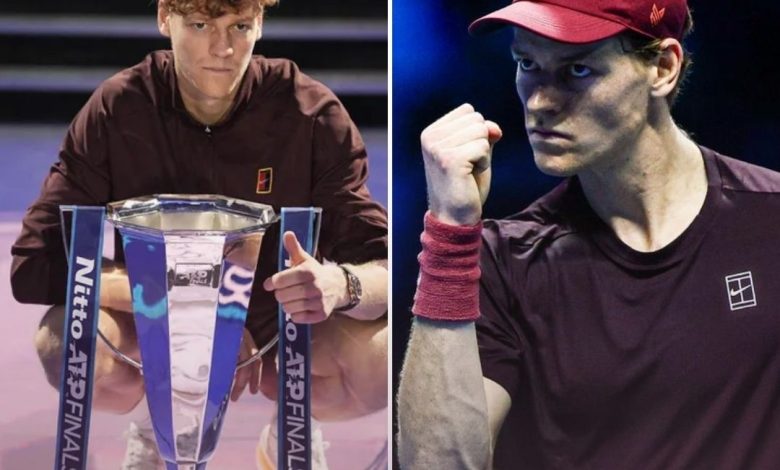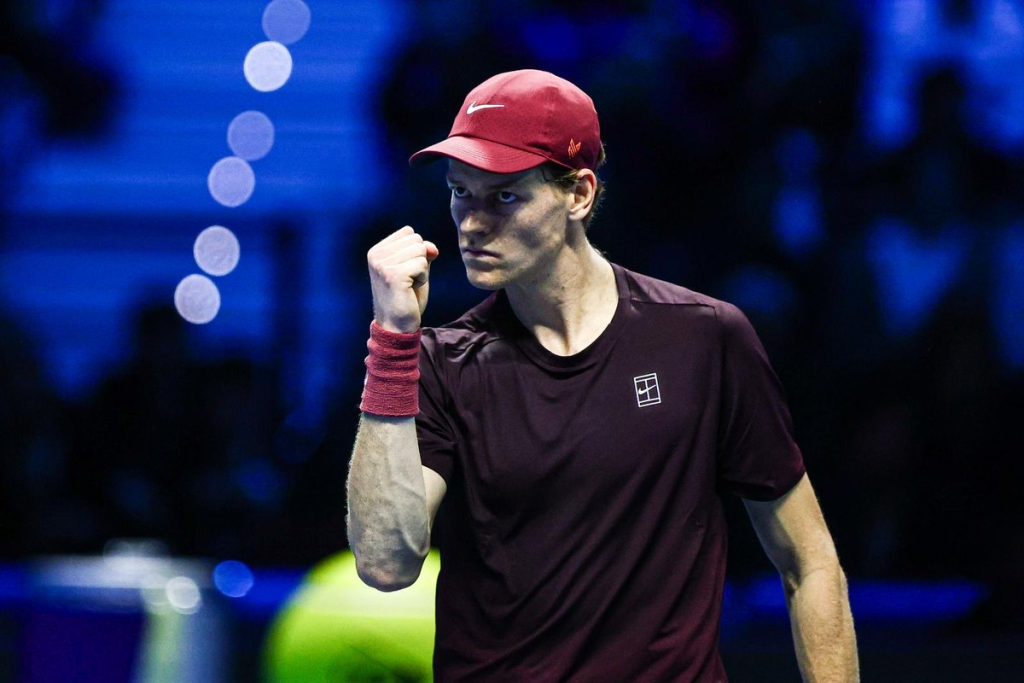It wasn’t luck — it was detail” Jannik Sinner explains how microscopic adjustments led him to ATP Finals glory.

Jannik Sinner closed his 2025 season with what he called “an amazing feeling,” lifting the ATP Finals trophy in Turin after defeating world No. 1 Carlos Alcaraz 7–6(4), 7–5. Speaking courtside, Sinner emphasized the emotional weight of finishing the year in front of a home crowd, saying it felt “very emotional seeing my team there and the whole box,” and adding that the moment carried even more meaning because it capped a year of personal and competitive progress.
Despite falling short of the year-end No. 1 ranking, Sinner made it clear he was not interested in comparing 2025 to his breakout 2024 campaign. “Honestly, I don’t want to compare,” he said, highlighting how both seasons were “amazing” in different ways. He pointed to his four Grand Slam finals in 2025 and late-season winning streak as proof that he had become “a better player than last year,” adding that the ultimate goal was always improvement rather than points or rankings.
Sinner also explained how his development this season came from the way he handled adversity. He noted that he didn’t suffer “many losses,” but that each one was used constructively: “All the losses I had, I tried to see the positive thing and evolve in a very good way.” With an extended off-season ahead, the Italian said he and his team would use the time to “adjust ourselves already for next season” and build on the foundations that carried him to the title in Turin.

His final against Alcaraz, their 16th career meeting, reaffirmed one of tennis’s premier rivalries. Sinner said “small, small details made the difference,” such as saving a set point in the opener and breaking back in the second with what he admitted was “a shanked return.” He said both players began nervously because “we know each other, what we have to do,” but as the rallies deepened, the level rose. “At the end of the set we were both playing great tennis from the back of the court,” he said, noting that against Alcaraz “every point you have to earn in a very right way.”
Sinner explains key moments in the final
Reflecting on the turning points, Sinner described the match as a matter of margins. Even 30-all points, he said, could shift the entire landscape of a final of this magnitude. He pointed specifically to 2–1 in the first set—an early stage that could have flipped momentum instantly. “If he breaks there, the match could lead very fast in the other way,” Sinner explained. Ultimately, he felt the combination of discipline, clarity of tactics, and a touch of luck pushed him across the finish line.

Questions about his relationship with Alcaraz drew a warm response. Sinner emphasized the mutual respect between the two: “We are good friends off the court. We do respect us in a very healthy way.” While he acknowledged the modern tour’s larger teams make the social dynamic different from past generations, he said friendships still develop, citing Jack Draper and Reilly Opelka as examples of players he feels close to. With Alcaraz, he described a unique mix of rivalry and camaraderie, strengthened by how often they compete for major titles.

Sinner also discussed the adjustments made since his US Open final appearance. His serve, he said, had “evolved in a positive way,” and from the baseline he had become “a bit more unpredictable.” Still, he acknowledged room for improvement, stressing how much credit Alcaraz deserved for pushing him to refine his game. Looking ahead, he underlined the importance of December: “You connect better because you don’t have the pressure and the rush… it’s very important not only for work ethic but to connect the whole team even better.”





